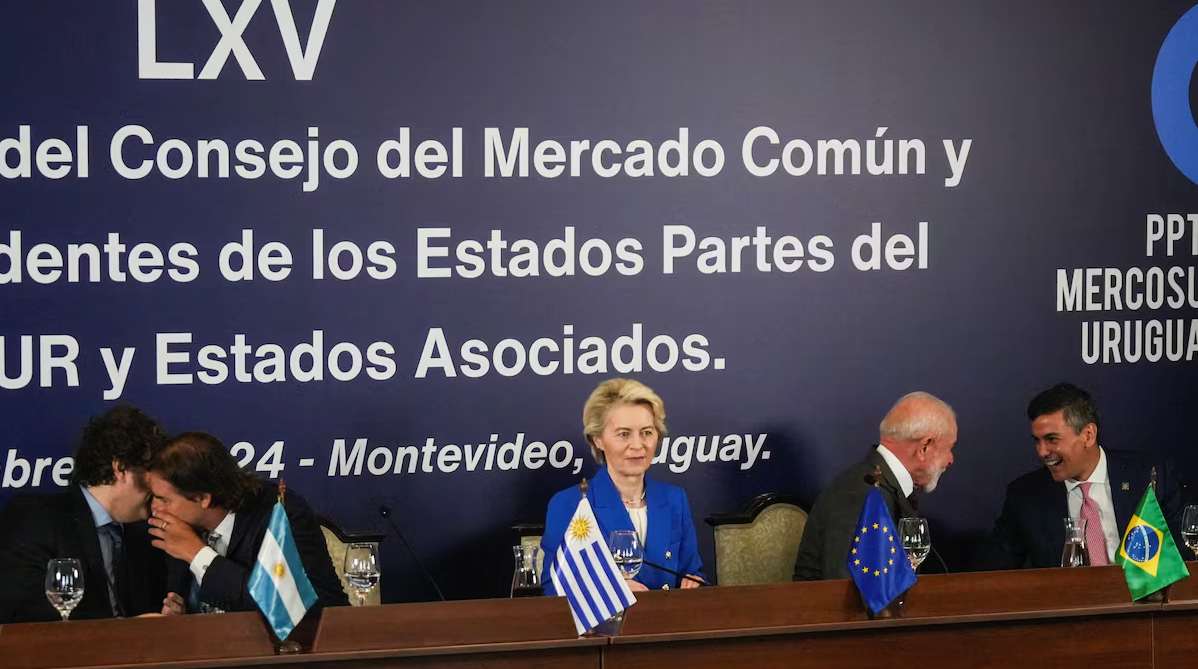For more than two decades, endless negotiations have been taking place between Mercosur and the European Union (EU) in an effort to reach an Association Agreement. Time and again, when a definitive conclusion seems within reach, new obstacles arise that reopen the debate.
Although formal ties between the two blocs were established shortly after Mercosur’s creation in 1991, negotiations for an association agreement began in 1999. After twenty years of progress and setbacks, it was announced in June 2019 that they had concluded. However, covert European protectionism and stricter environmental demands halted the ratification process. In a more fluid and challenging international context, a new understanding was announced in December 2024, which this time did lead to the European Commission’s formal presentation of the agreement — albeit divided into two texts.
The separation between a provisional Trade Agreement and an Association Agreement — an alternative that facilitates approval of the trade component by European institutions — clearly signals the Commission’s intent to move forward and avoid blockages caused by potential vetoes. The question now is whether this time a conclusion will truly be reached, or if the process will once again remain open. For now, it is the Mercosur countries that await Europe’s final position.
How the trade agreement is voted on in the EU
In the Council, international trade agreements require a qualified majority: at least 55% of member states (15 of 27), representing at least 65% of the EU population. While unanimity is not required, the relative weight of France and other agriculturally sensitive states poses a real risk, as opposition from even one major player can seriously complicate the process. In the European Parliament, approval requires only a simple majority of votes. This condition, seemingly favorable, cuts both ways — it can make approval easier, but also rejection.
What is the balance of power in the Council and the Parliament?
The European Commission is trying to persuade reluctant states by incorporating additional safeguards — introduced on October 7 — aimed at strengthening protections for European farmers. Italy appears to have been convinced. Poland, however, remains dissatisfied, though its Minister of Agriculture has stated that potential mechanisms to protect producers are being explored, prompting opposition criticism for what was seen as yielding to Brussels.
In this context, the “France factor” remains decisive. The pressure from the powerful rural lobby and the political consensus around defending agricultural interests explain France’s resistance. Recent statements by Emmanuel Macron — amid a prolonged domestic political crisis — seemed to suggest some willingness to reconsider the veto.
However, while German Chancellor Friedrich Merz caused confusion by wrongly claiming that at the October 23 European Council meeting all member states had unanimously supported the signing of the agreement, Macron stated that “the work continues” to finalize the safeguard clauses introduced by the European Commission, which Paris deems “essential” to improve the text. He also expressed his wish for the process to conclude soon and for Mercosur countries to receive formal notification and provide the necessary assurances requested by France.
The desire of countries such as Germany and Spain to move quickly once again runs up against France’s protectionist demands. In recent days, the recently resigned and subsequently reinstated Prime Minister Sébastien Lecornu addressed the European Commission to reaffirm France’s discontent with the agreement and demanded measures to prevent unfair competition from South American farmers. Lecornu sent a formal letter to the Commission — a sensible precaution following the mysterious disappearance of Macron’s emails to Ursula von der Leyen reiterating France’s opposition to the deal. Von der Leyen is currently under investigation for this matter.
Tensions are also evident in the European Parliament. The dividing lines are largely national: French, Polish, and Irish Members of European Parliament (MEPs) across the political spectrum oppose the agreement, while those from Germany, Spain, and Portugal are among its strongest supporters. In the Netherlands and Austria, criticism of the agreement is widespread, though MEPs are divided.
Ideologically, divisions persist as well: a faction of left-wing MEPs is promoting a resolution to challenge the agreement before the EU Court of Justice. Although the European People’s Party (EPP), the largest group, supports ratification, forty MEPs — including fourteen from the EPP itself — sent a letter to the Commission expressing reservations and warning of potential impacts on the agricultural sector. Other MEPs are conducting field visits; a group from the Committee on Agriculture and Rural Development is currently in Brazil.
What would it mean if the agreement is finally concluded?
The EU–Mercosur agreement would be the largest trade deal in the history of both blocs. Yet, to paraphrase Borges, “it is not love that unites them, but dread.” Beneath asymmetrically complementary trade flows and clearly defined offensive and defensive interests on both sides, the protectionist policies of the Trump administration have functioned as a decisive external factor, spurring an approach that might otherwise have been difficult to achieve. While Mercosur seeks to consolidate its role as a strategic partner and has shown greater flexibility, the EU remains constrained by the need to protect sensitive sectors of its economy — once again positioning itself as the actor with the greater defensive interests — even as it maintains a strong rhetorical commitment to promoting a rules-based multilateral trading system.
And if it does not happen?
It would not necessarily be catastrophic. Mercosur–EU relations have more than thirty years of history without a formal, ambitious agreement. If it is not signed and ratified, it would simply mark another episode in a relationship long characterized by partial advances, setbacks, and resilience.














